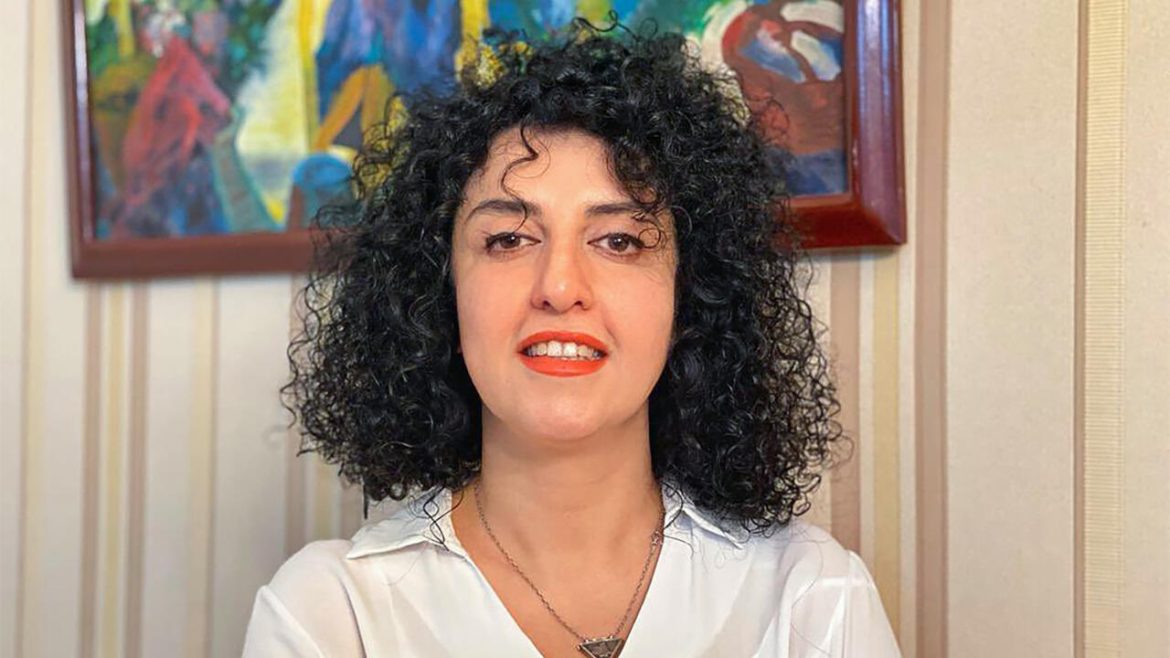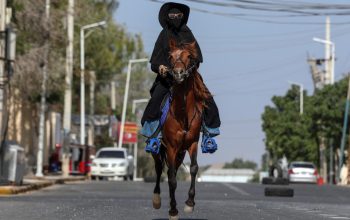The 52-year-old has been jailed repeatedly over the past 25 years, most recently since November 2021, for convictions relating to her advocacy against the obligatory hijab for women and capital punishment in Iran.
Released from prison on December 4 for three weeks on medical grounds after undergoing bone surgery, Mohammadi spoke with the French magazine Elle about the conditions at the Evin prison in Tehran, where she is incarcerated.
“My body is weakened, it is true, after three years of intermittent detention… and repeated refusals of care that have seriously tested me, but my mind is of steel,” Mohammadi said, responding in Farsi to Elle’s questions via voice messages and written text.
She said she intended to publish her autobiography, which she has completed, and was working on a second book “on the sexual assaults and harassment committed against women detained in Iran”.
Mohammadi said there were 70 prisoners in the women’s ward at Evin “from all walks of life, of all ages and of all political persuasions”, including journalists, writers, women’s rights activists and people persecuted for their religion.
One of the most commonly used “instruments of torture” is isolation, said Mohammadi, who shares a cell with 13 other prisoners.
“It is a place where political prisoners die. I have personally documented cases of torture and serious sexual violence against my fellow prisoners.”
Despite the harsh consequences, there are still acts of resistance by prisoners.
“Recently, 45 out of 70 prisoners gathered to protest in the prison yard against the death sentences of Pakhshan Azizi and Varisheh Moradi,” two Kurdish women’s rights activists who are in prison, she said.
Small acts of defiance — like organising sit-ins — can get them reprisals like being barred from visiting hours or telephone access.
She also said that speaking to reporters would likely get her “new accusations”, and that she was the target of additional prosecutions and convictions “approximately every month”.
“It is a challenge for us political prisoners to fight to maintain a semblance of normality, because it is about showing our torturers that they will not be able to reach us, to break us,” Mohammadi said.
After Mohammadi was awarded last year’s Nobel Peace Prize, her two children collected the award on her behalf.
The US State Department last month called Mohammadi’s situation “deeply troubling”.
“Her deteriorating health is a direct result of the abuses that she’s endured at the hands of the Iranian regime,” State Department spokesman Vedant Patel said, calling for her “immediate and unconditional” release.
© 2025 AFP



